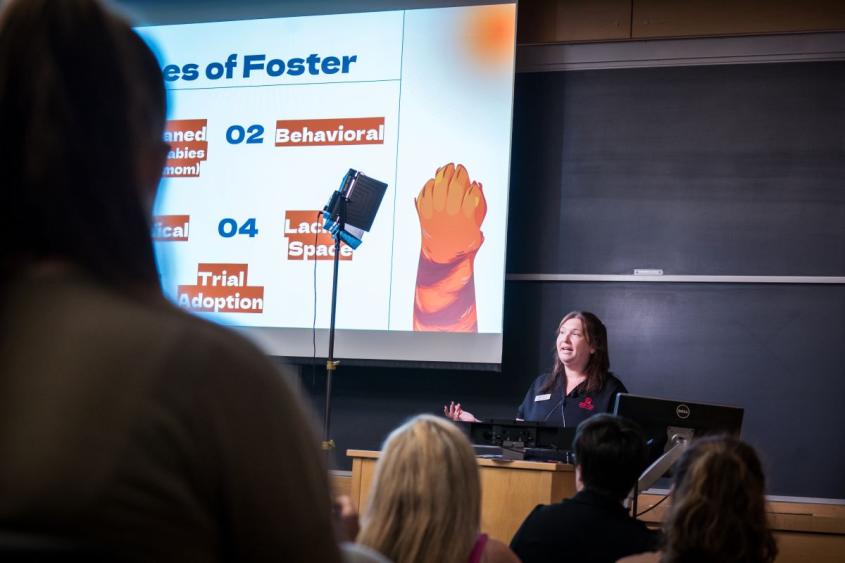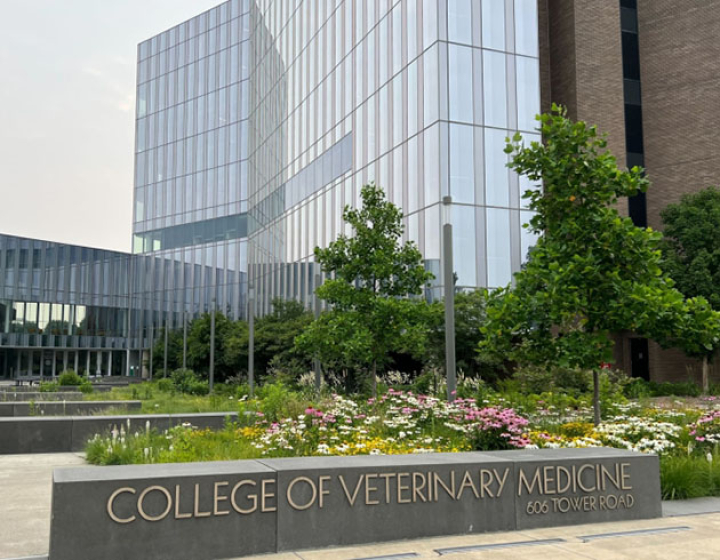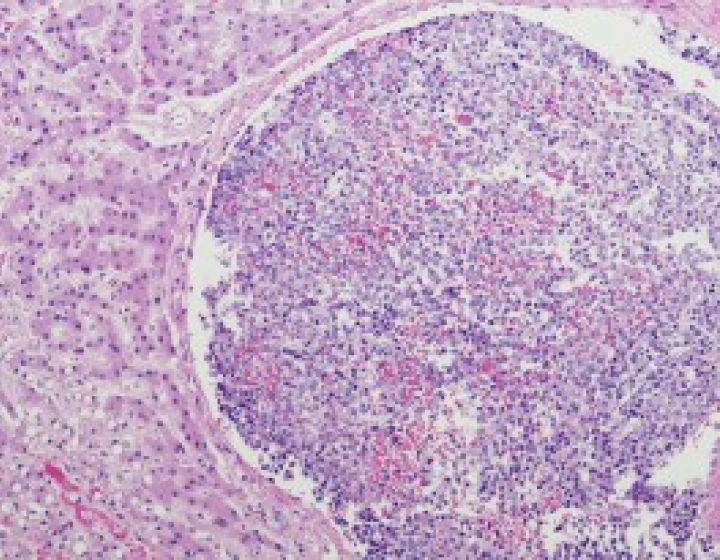20th Anniversary Conference for Shelter Medicine highlights achievements in the field
On July 22-23, Cornell University's College of Veterinary Medicine hosted the 20th anniversary of the 2023 ASPCA Cornell Maddie’s Shelter Medicine Conference. Drawing 461 participants from around the world, this conference’s memorable history and achievements shine today.
To kickstart the conference, Matt Bershadker, president and CEO of the American Society for the Prevention of Cruelty to Animals (ASPCA), shared his vision for the future of animal sheltering in the keynote address. He highlighted the unique and proven power of shelter medicine to help animals in need, to strengthen the bonds between people and pets, and to make communities stronger and more compassionate. He also noted the tremendous revolution of animal sheltering over the last 20 years.
In 2003, between 8-12 million animals were estimated as entering shelters every year, and 5-9 million animals were being euthanized. By 2023, the number of animals entering shelters is estimated to be 6.3 million, with less than 1 million animals being euthanized.
Advancements in the field
This change is reflective of numerous advancements, including veterinarians getting more involved in shelters, a public embrace of spay/neuter, adoption becoming an important way to find a family member, and behavior training and enrichment programs within shelters. Shelters have become more deeply ingrained within local communities and created thriving foster and volunteer programs. Recently, there has been a push towards more affordable and accessible veterinary care, with many new programs aimed at closing that gap.
One example of increasing accessible health care comes from conference founder Leslie Appel ’90, D.V.M. ’94. Aside from being the former director of veterinary outreach at the ASPCA, she is also the executive director of Shelter Outreach Services (SOS), which provides high-quality, high-volume spay and neuter services (HQHVSN). SOS was launched in 2003, marking its 20th anniversary as well. SOS expanded in 2018, where it now provides services for up to 45 clinics per month, marking 205,000 sterilizations within the finger lakes region alone.
“SOS partners with local shelters and humane organizations to hold daily HQHVSN clinics. Most of these SOS partners have limited resources for continuing education. The original idea for this conference was to bring continuing education to local and regional animal welfare professionals.” said Appel. “It has been exciting to see the impact HQHVSN has had on the profession. It truly is the cornerstone for shelter medicine and animal welfare. We can turn the attention towards access to care and treating more animals because we now have better control over the companion animal population.”
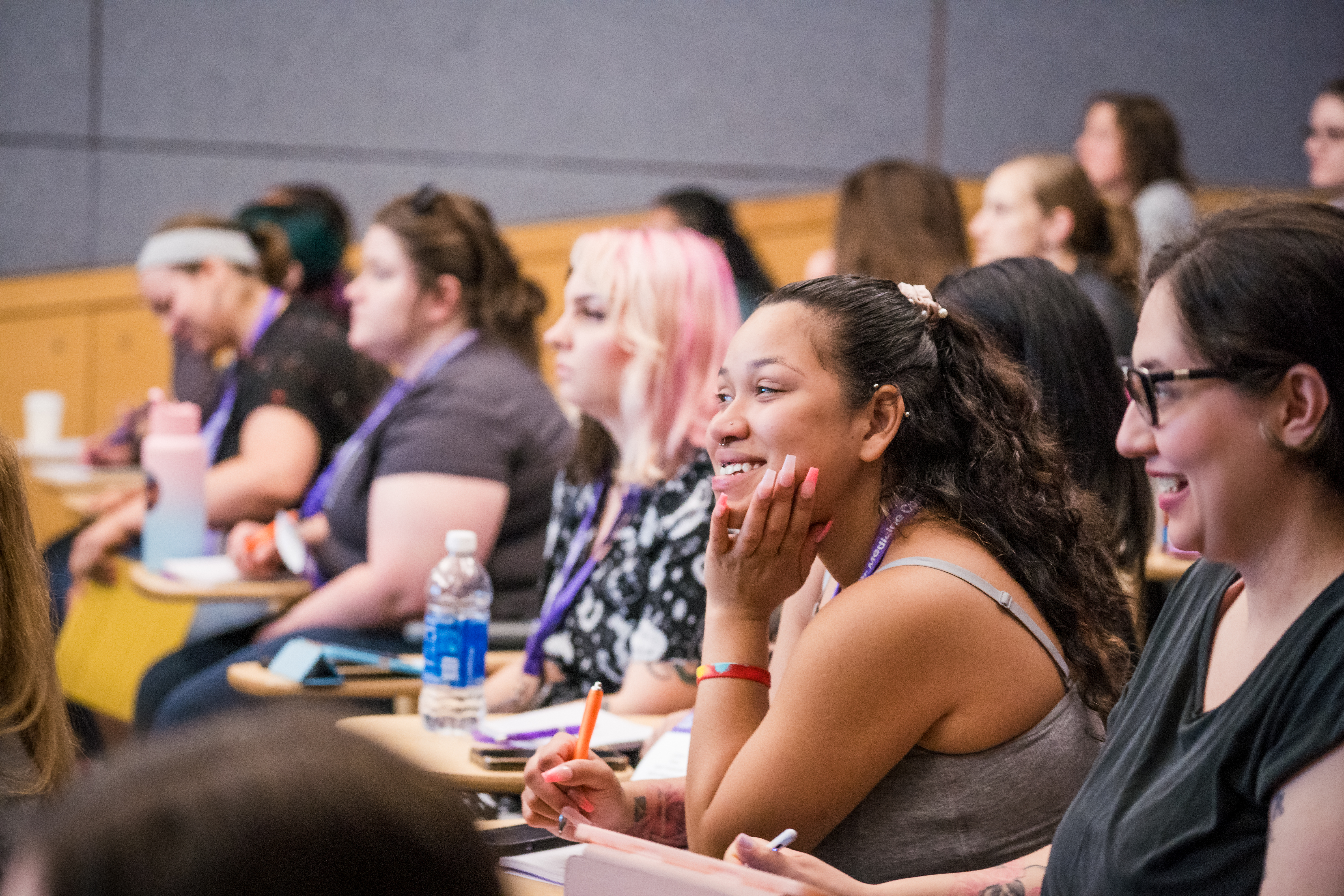
Twenty years of growth
In its 2003 inauguration, the conference was free to attend, had 20 people, was one day, and one track, with people registering by calling Appel’s personal cell phone. “It was the brainchild of Leslie, who wanted to get all of her shelter outreach services clients together for learning opportunities,” said Dr. Lena DeTar, interim director and assistant clinical professor of Maddie's® Shelter Medicine Program at Cornell. “She pulled in Dr. Jan Scarlett, founder of the shelter medicine program at Cornell, and Dr. Lila Miller from the ASPCA, and a few years later, funding from Maddie’s® Fund.” The conference has since become jointly organized and hosted by the ASPCA and Cornell.
Now, the event has grown to be multi-day, four tracks, and up to 550 people attending. During the COVID-19 epidemic, the conference’s online platform had over 2,000 attendees. This year’s sessions covered a diverse range of topics, including kitten fostering, emergency medicine, animal behavior, policy, and how to manage the stressful environment within shelter medicine with a focus on mental health and healthy relationships.
“I am awed and humbled by the growth and evolution of the conference, which parallels the development and expansion of shelter medicine as a discipline,” said Stephanie Janeczko, D.V.M. ’04, vice president of Shelter Medicine Services at the ASPCA. She noted how in 2014, the field of shelter medicine was formally recognized as a veterinary specialty, with more than 30 board certified specialists working in the field today. “It’s always so exciting to catch up with old colleagues and friends who come each year, along with making new contacts among attendees who are joining us for the first time – all united by a passion for doing more and better for animals in shelters and the communities they serve.”
As the scope and popularity of the conference has grown, the planning committee has maintained an emphasis on keeping the event as accessible as possible. To help make some of the traveling less burdensome for struggling shelters, in 2013 the ASPCA created a scholarship in honor of Appel which she asked to be named for her beloved dog BeeBee. The BeeBee Appel scholarship has funded over 112 organizations who have collectively sent over 280 people to attend this conference, within the past 10 years.
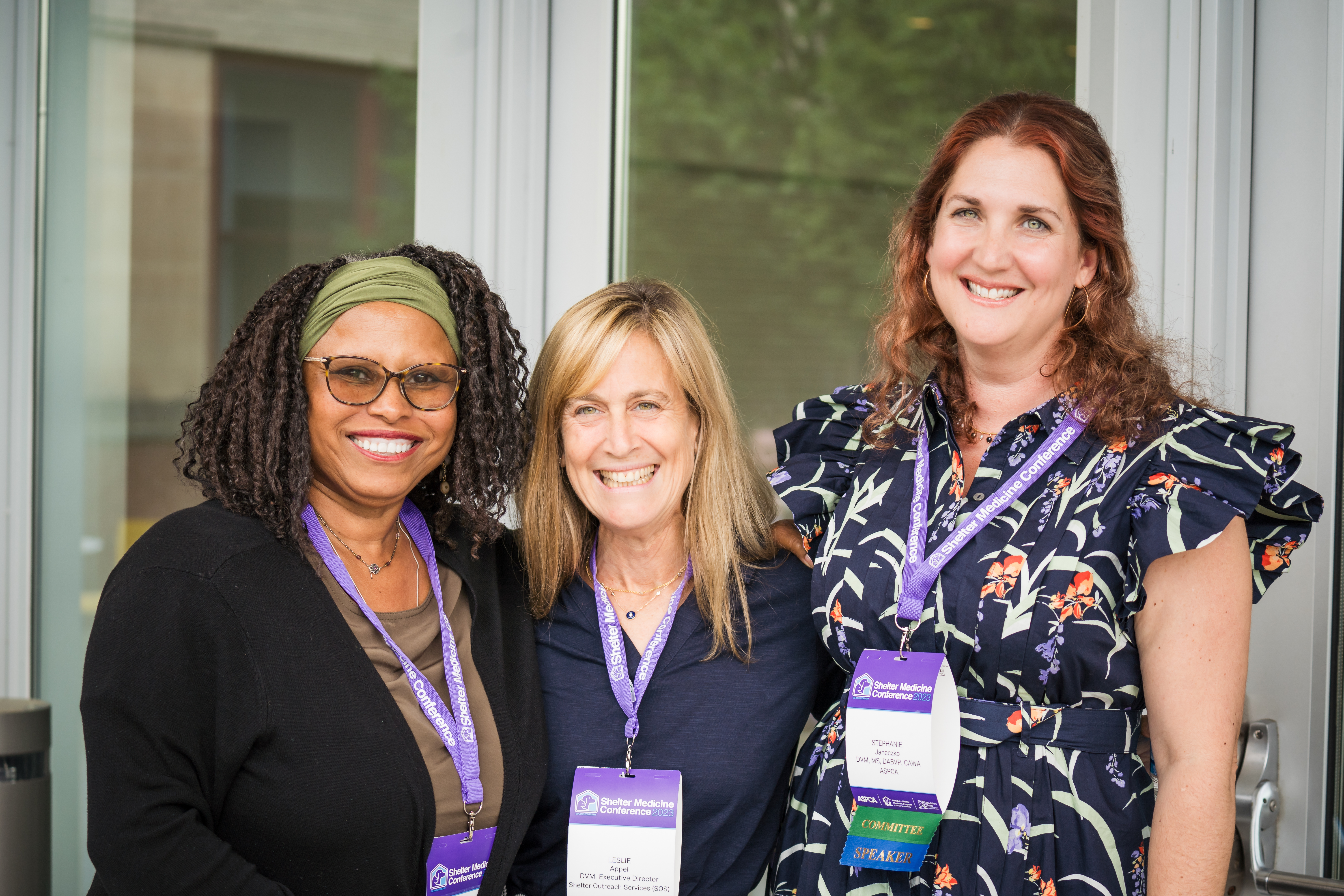
Cornell's role
Cornell has been integral in establishing shelter medicine as a specialty. In 1999, the ASPCA’s Lila Miller, D.V.M. '77, partnered with Cornell University’s professor of epidemiology, Dr. Jan Scarlett, and launched the very first shelter medicine course, "Issues and Preventative Medicine in Animal Shelters.”
Maddie's® Fund, established in 1994 by Dave and Cheryl Duffield with the promise “to help companion animals and the people who love them,” awarded seed money to Cornell University to build a comprehensive shelter medicine program with residency training in 2004, the second of its kind in the nation. Two years later, the program received $700,000 in endowed funding for resident training, of which Janeczko was the program’s first resident, and in 2007 it received a $2 million endowment for a shelter medicine clinician, the first endowment for training in the specialty.
“We’ve come a long way in terms of animal welfare, and become a lot more organized in terms of knowledge, transparency and networking,” said DeTar. “Shelters talk to each other now, and share common concerns and solutions.”
Written by Megan Keller
Photography by Darcy Rose



